© 2025 MJH Life Sciences™ , Patient Care Online – Primary Care News and Clinical Resources. All rights reserved.
3 Liver Disease Case Challenges: Transplant, Steatohepatitis, Cirrhosis
When is liver transplant curative? What is the best management option for esophageal varices? And, is hepatorenal failure to blame here? Test your hepatic management know-how.
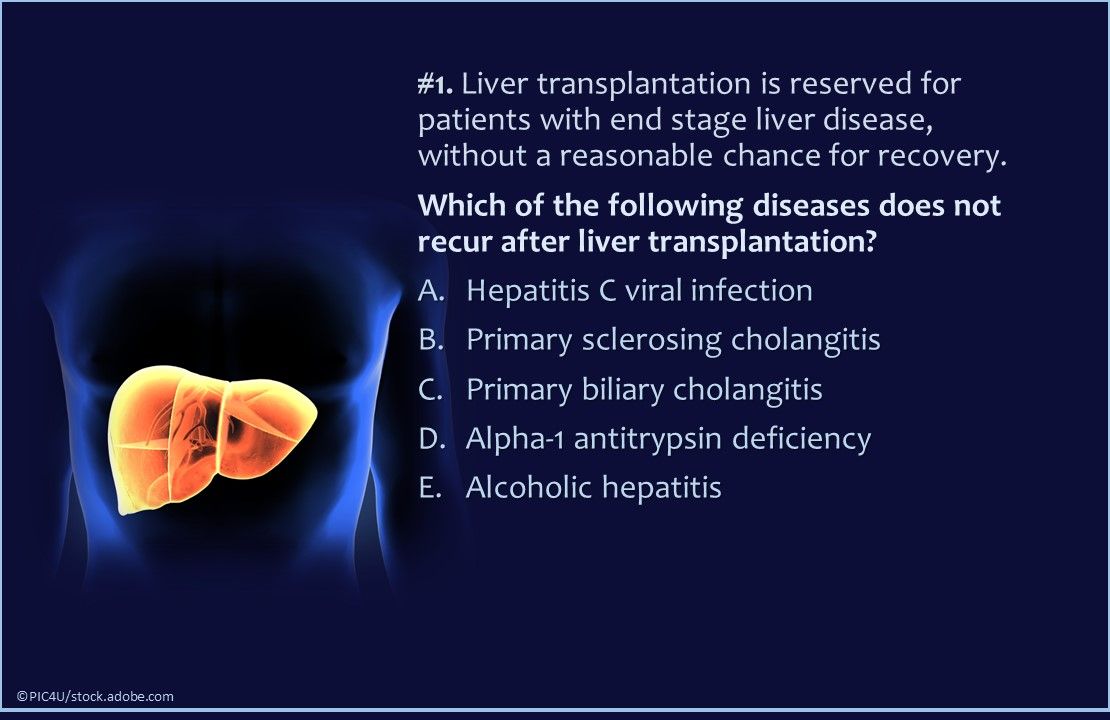
#1. Liver transplantation is reserved for patients with end stage liver disease, without a reasonable chance for recovery. Which of the diseases above does not recur after liver transplantation?
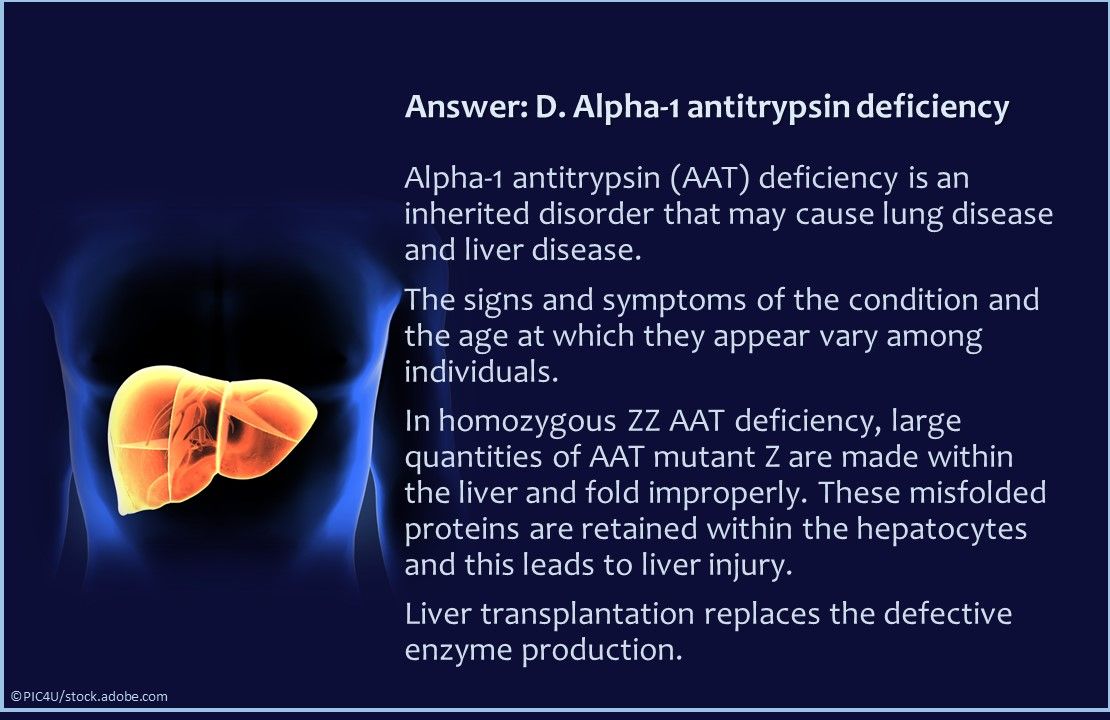
Answer: D. Alpha-1 antitrypsin (AAT) deficiency. AAT is an inherited disorder that may cause lung disease and liver disease. The signs and symptoms of the condition and the age at which they appear vary among individuals.
For more information: Patel D, Teckman J. Alpha-1-antitrypsin deficiency in liver disease. Clin Liver Dis. 2018;22:643-55.
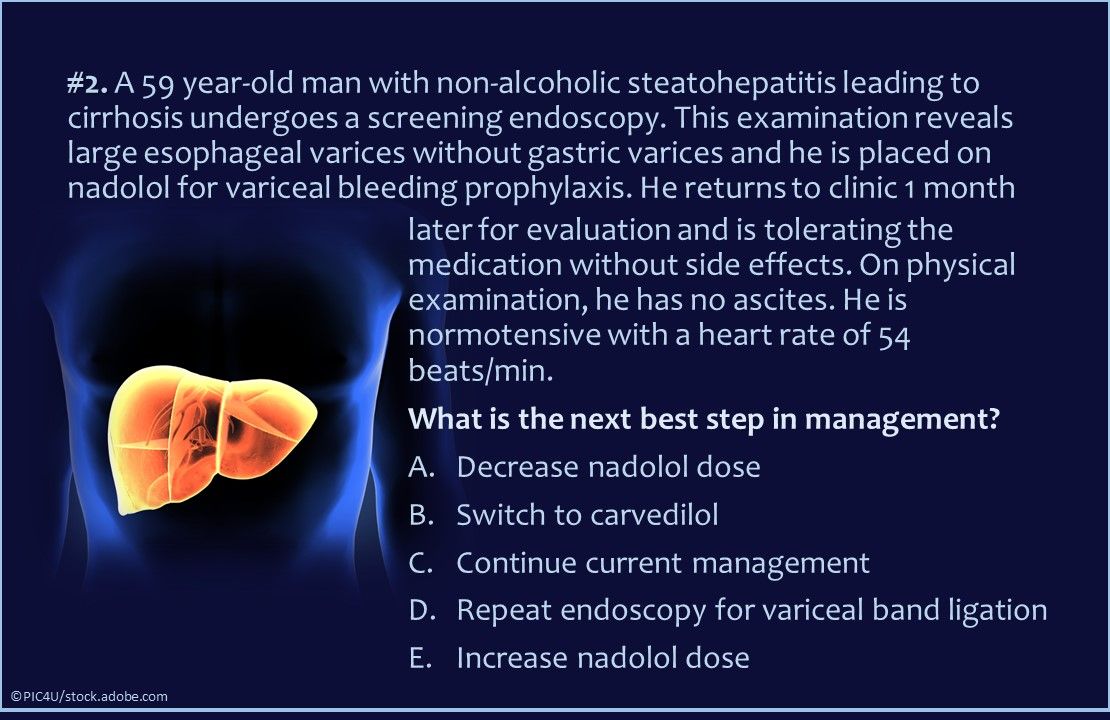
#2. A 59-year-old man with non-alcoholic steatohepatitis leading to cirrhosis undergoes a screening endoscopy which reveals large esophageal varices without gastric varices; nadolol is initiated as prophylaxis. One month later he is normotensive with HR of 54 beats/min. What is the next best step in management?
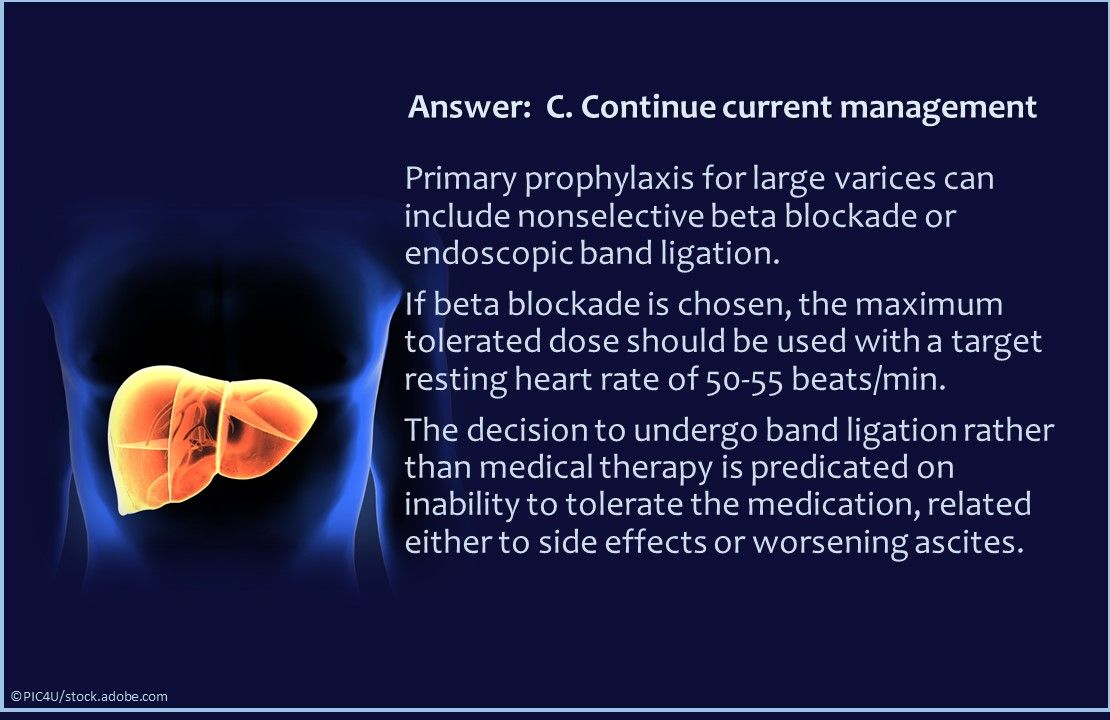
Answer: C. Continue current management. Primary prophylaxis for large varices can include nonselective beta blockade or endoscopic band ligation.
For more information: Garcia-Tsao G, Sanyal AJ, Grace ND, et al. Practice Guidelines Committee of the AASLD; the Practice Parameters Committee of the ACG. Prevention and management of gastroesophageal varices and variceal hemorrhage in cirrhosis. Hepatology. 2007;46:922-938.
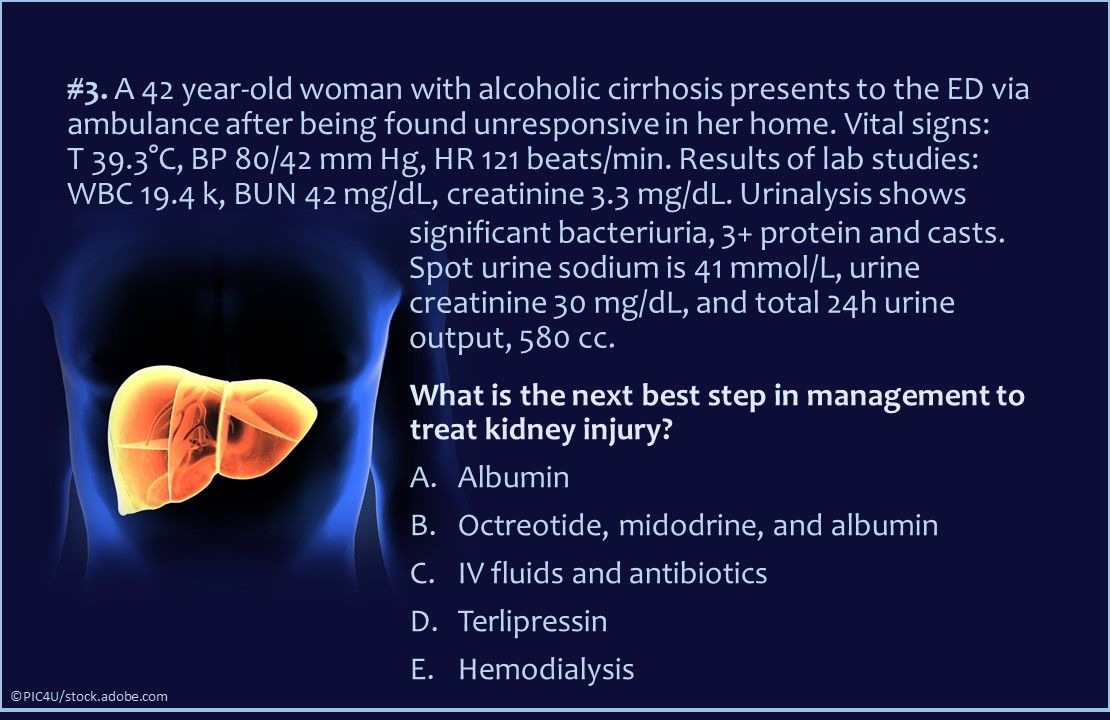
#3. A 42 year-old woman with alcoholic cirrhosis presents to the ED via ambulance after being found unresponsive in her home. Based on the exam and laboratory results above which demonstrate kidney injury, what is the next best step in management?
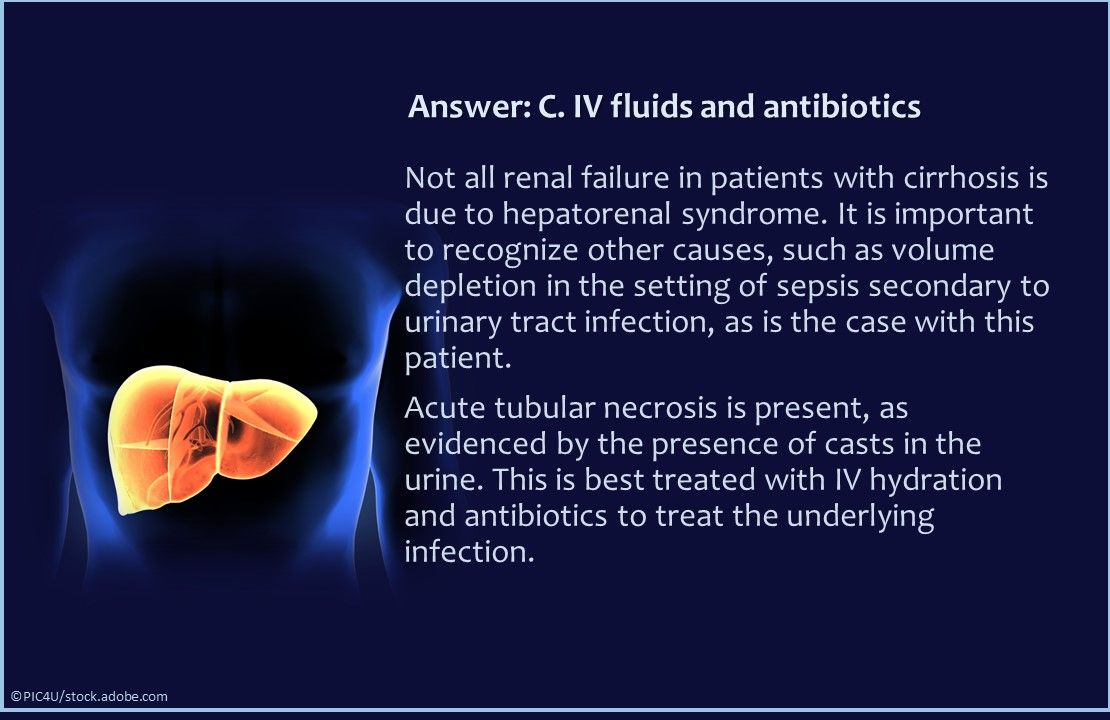
Answer: C. IV fluids and antibiotics. Not all renal failure in patients with cirrhosis is due to hepatorenal syndrome. It is important to recognize other causes, such as volume depletion in the setting of sepsis secondary to urinary tract infection, as is the case with this patient.
For more information: Salerno F, Cazzaniga M, Merli M, et al. Diagnosis, treatment and survival of patients with hepatorenal syndrome: a survey on daily medical practice. J Hepatol. 2011;55:1241-8.
Follow Dr James on Twitter: @TedWJamesMD
Related Content:




